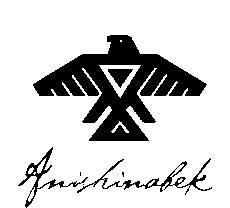NEWS RELEASE
UNION OF ONTARIO INDIANS ****************** NIPISSING FIRST NATION, NORTH BAY, ON - (Oct. 31, 2005) - The emergency evacuation of Kashechewan First Nation demonstrates the need for First Nations citizens to be more involved in government decisions directly affecting them, says Grand Council Chief John Beaucage, political leader of the Anishinabek Nation.
"We are extending support to our Mushkegowuk cousins during this trying time," said Grand Council Chief John Beaucage, "and one of the best ways we can do that is to continue to challenge the government of Canada to work with us to seek comprehensive solutions to such life-threatening situations.
This morning, at a Special Assembly of First Nation Chiefs Meeting in Regina, Chief Beaucage was asked to participate in a comprehensive national review of First Nations drinking water across Canada.
The Anishinabek leader, who holds the AFN Ontario portfolio for Capital and Infrastructure, called for stringent national standards for drinking water on First Nations.
"The new First Nations' standards would exceed the minimum provincial standards for clean drinking water," he said.
Just last month, Beaucage publicly urged federal officials to heed warnings in a report by Canada's Commissioner of the Environment and Sustainable Development which expressed concern about the lack of laws and regulations governing the provision of drinking water to First Nations residents.
"We need substantially more training opportunities to improve water plant operations and the skill sets necessary to monitor, manage and treat our drinking water," he said today. "We need the government to support our own training programs by ensuring all First Nations' plant operators have received that training and have some form of endorsement certificate."
Beaucage said a joint planning and monitoring process involving First Nations is essential to ensure that political will takes the form of meaningful action. "Too many good intentions from cabinet ministers simply don't translate into actions by government bureaucrats. The messages aren't working their way down through the system."
He noted that the views of Kashechewan citizens were ignored in the original selection by federal officials of their community site and the subsequent construction of a system that permits raw sewage to flow directly into the drinking water supply.
"This is what happens when others think they know better than the very people they claim to be trying to help."
Beaucage said his political office staff and several Anishinabek Chiefs were working with Nishnawbe-Aski Nation leaders and representatives of the Red Cross, City of Greater Sudbury, and N'Swakamok Friendship Centre to determine how best to assist over 250 Kashechewan residents evacuated to Sudbury because of a tainted-water crisis in the James Bay Cree community.
"The Kashechewan tragedy might be a news story to many Canadians," said Beaucage, "but there are First Nations citizens who live with unsafe sources of drinking water each and every day."
Beaucage noted that his home community of Wasauksing First Nation near Parry Sound is one of a number of Anishinabek Nation members whose citizens have been living under the constant threat of boil-water advisories.
"Everyone needs the same water source protection and standards, whether they live in Wasauksing or Walkerton," said Beaucage, referring to the southern Ontario town where the death of seven citizens from a bacteria-infected water supply triggered a provincial inquiry and subsequent changes to regulation of Ontario's municipal water systems.
"The conditions of our drinking water, and the health and safety of our people is of the utmost concern," said the Grand Council Chief. "For First Nations people, water is considered our lifeblood. It is the source of life for us all."
He will address these requirements with both National Chief Phil Fontaine and Indian and Northern Affairs Minister Andy Scott in the coming weeks.
The Anishinabek Nation incorporated the Union of Ontario Indians as its secretariat in 1949. The UOI is a political advocate for 42 member First Nations across Ontario. The Union of Ontario Indians is the oldest political organization in Ontario and can trace its roots back to the Confederacy of Three Fires, which existed long before European contact.
*******************
